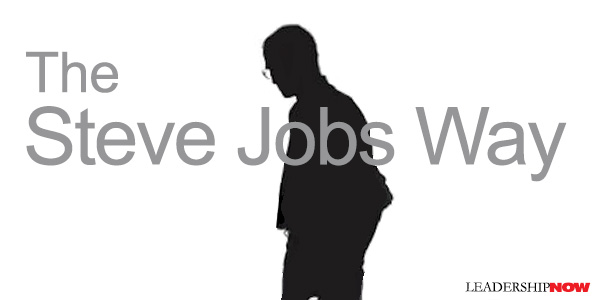 |
 |
03.25.11

The Steve Jobs Way
APPLE is on a roll and we want to know how Steve Jobs does it. The Steve Jobs way is, in a word, passion. Passion drives his perseverance and momentum through setbacks.
Jobs succeeds because he follows his passions. “He understands the mindset of the people he wants to create products for because he is one of them. And because he thinks like his future customers, he knows he has seen the future.” At the same time, Jobs does not rely on focus groups. That might be good for incremental change, but to “make a dent in the universe,” you need people who focus on what the experience could be. Elliot says Jobs loved to quote Henry Ford: “If I had asked my customers what they wanted, they would have told me, ‘A faster horse.’” Not only is Jobs enthusiasm infectious, but he thinks regularly about how to build enthusiasm. At Apple, meetings were driven by ideas and those who had them and were not dictated by hierarchy as in most organizations. “He knows that you have to become the product to lead well. He finds powerful ways to make certain every employee is convinced that he knows their contribution is essential to the product’s success.” Innovation is a group activity at Apple. “Imagine,” says Elliot, “working on a product so desirable that the members of the development team can hardly wait to finish it so they could each have one of their own.” One-time Apple executive Jean-Louis Gassé endorsed Steve’s management style with a memorable phrase: “Democracies don’t make great products—you need a competent tyrant.” People who worked for Steve forgave him, or at least tolerated his style, in part because, more than anything else, he was a product tyrant, totally dedicated to delivering the products he envisioned. Jobs is the ultimate user. Everything is designed around the customer experience. Former employee Donna Dubinsky recalled a decision Jobs made that illustrates this value: We were moving from 300 dpi printers to 1200 or something—some generational shift. What to do with the old inventory? You cut the price and blow them away. You make money from customers who want the bargain. From watching the Apple/Jobs split in 1985 first-hand, Elliot saw that “learning how to make yourself understand, learning how to be persuasive, is critical for a business leader.…It was an object lesson in what happens when a company does not have a cohesive product strategy and is organized functionally instead of in distinct product groups.” Elliot’s appraisal of Steve Job’s leadership is helpful for anyone wanting to get a better look “behind the curtain” from someone who was there and worked closely with Jobs. The perspective is valuable. The stories and anecdotes alone are worth the time. Elliot recounts an interview Jobs had with Daniel Morrow on what it takes to be an entrepreneur: “I think you should go get a job as a busboy or something until you find something you’re really passionate about.” He believes that “about half of what separates the successful entrepreneurs from the non-successful ones is pure perseverance. 
Posted by Michael McKinney at 07:14 AM
|
BUILD YOUR KNOWLEDGE
 

How to Do Your Start-Up Right STRAIGHT TALK FOR START-UPS 
Grow Your Leadership Skills NEW AND UPCOMING LEADERSHIP BOOKS 
Leadership Minute BITE-SIZE CONCEPTS YOU CAN CHEW ON 
Classic Leadership Books BOOKS TO READ BEFORE YOU LEAD |